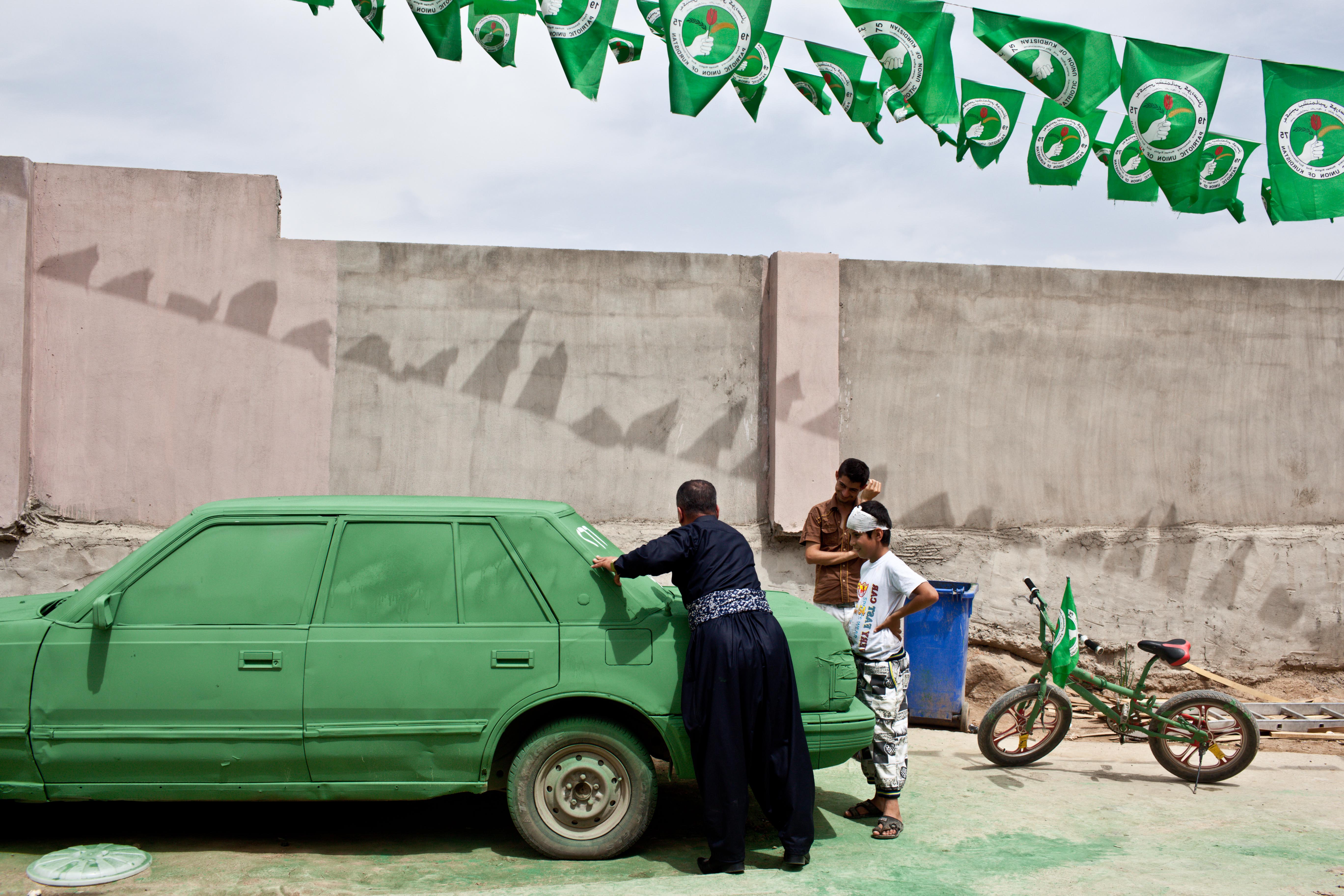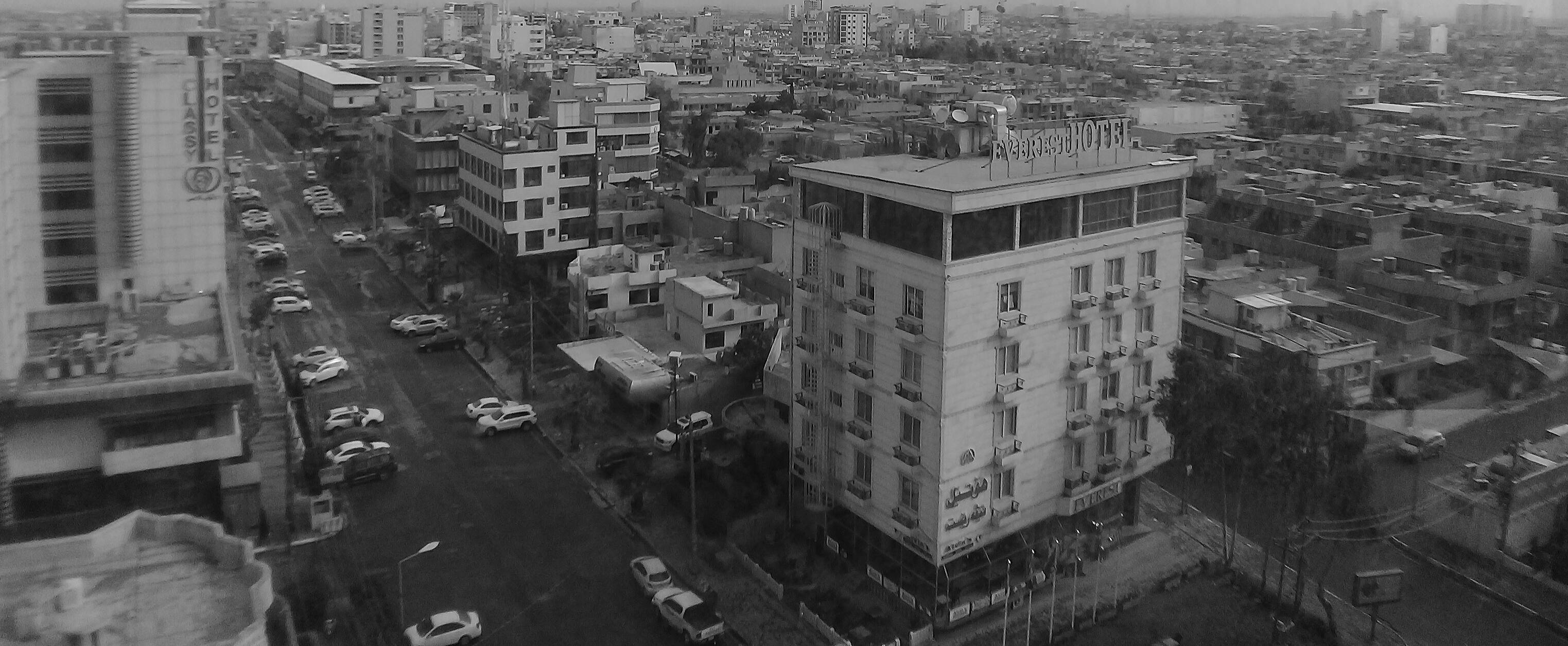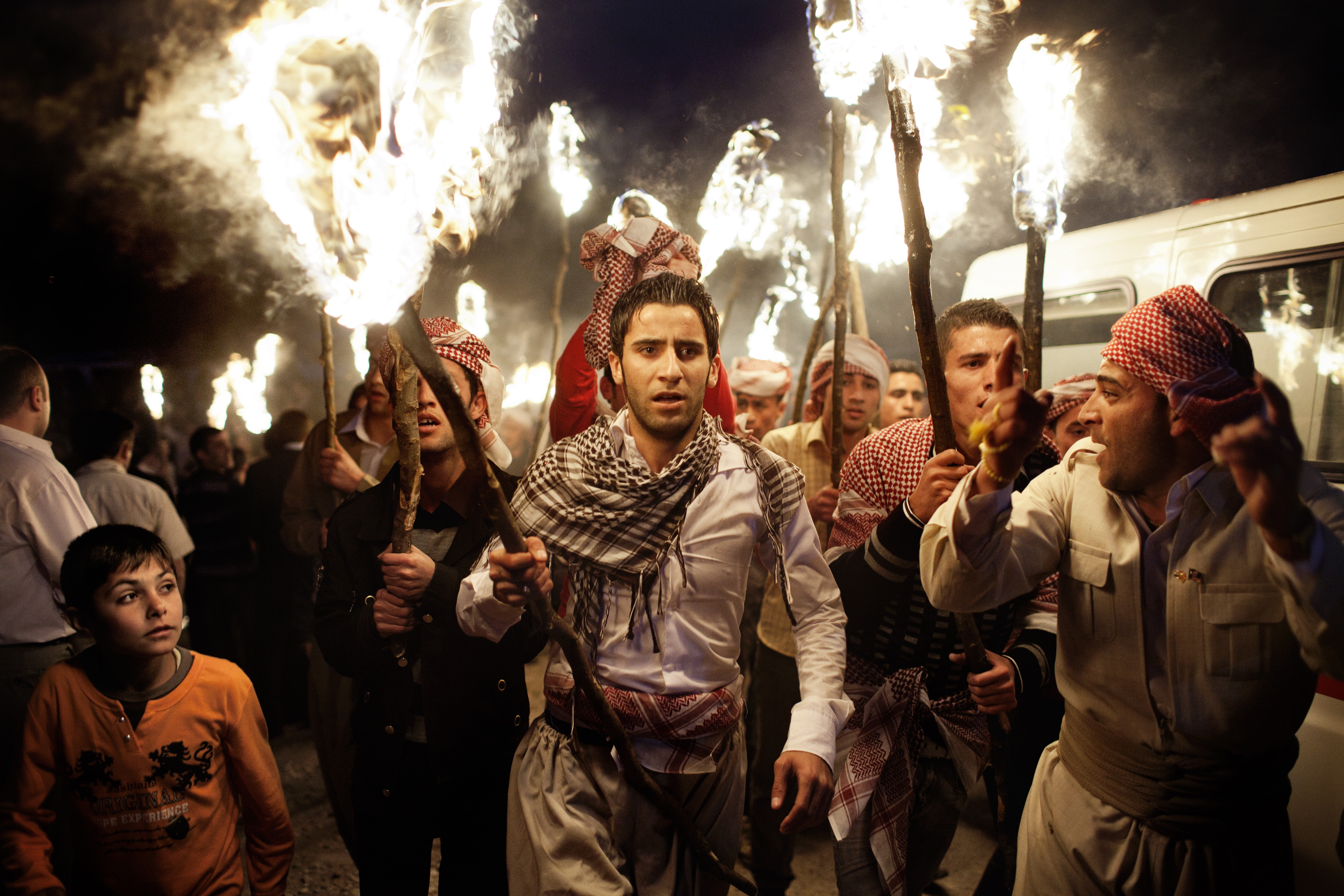
When Iraqi Kurds say that Kirkuk is their Jerusalem, they are referring both to the city's cultural significance and to the trouble it causes.
Kurds invoke a special attachment to the oil-rich city, citing historical ties and decades of bloodshed under Saddam Hussein in their fight to secure independence for the entire region of Kurdistan. They insist that Kirkuk — which both they and the national government in Baghdad claim, and whose very size is contested, with estimates ranging from under one million to 1.6 million — should be part of any autonomous Kurdish state. This demand unnerves other ethnic groups in Kirkuk: While Kurdistan is mostly Kurdish, Kirkuk is also home to large populations of Turkmen and Arabs, among others.
The disquiet has only worsened since the Islamic State, the radical Sunni group, began encroaching on the borders of the city in June. As the Iraqi government forces retreated, it was Kurdish fighters, the pesh merga, who resisted the onslaught. The Kurdish Regional Government, the official body that rules Kurdistan out of Erbil, then stepped in as Kirkuk's de facto authority, casting itself as the city's savior.
But with the K.R.G. taking charge even as Kirkuk was swelling with non-Kurdish refugees fleeing the Islamic State, suspicions about the Kurds' agenda have intensified, adding to the challenge of running the city as it verges on a humanitarian crisis. Throughout Kirkuk there are now signs in Arabic that read, "United, we can defeat ISIS." Yet this attempt to rally non-Kurds cannot seem to overcome their worry that the Kurds will use the current conflict as a cover to acquire land and access to oil fields.
In this respect, the Kurds' ability to manage sectarian tensions in Kirkuk today is a litmus test for whether they could govern an independent Kurdistan in the future.
After three car bombs tore through Kirkuk on Aug. 23 — an attack claimed by the Islamic State that killed more than 20 people and appeared to target Kurdish forces — there was a rash of execution-style killings, mostly, according to a report published by Amnesty International, of Sunni Muslims, both Turkmen and Arab. A Turkmen religious scholar who was friends with a young nurse found shot dead in the mixed Turkmen and Arab section of central Kirkuk said that many Arabs in the city are convinced Kurdish security forces were behind his death and the other killings, as retaliation for the car bombings. Another Kirkuk resident told Amnesty International soon after the initial attacks, "We Sunnis are regarded with suspicion and treated as if we are all members of the Islamic State."
By early September, just over a week after the bombings, Kirkuk's large Turkmen population had grown with hundreds of displaced people from Amerli, a small city about 60 miles to the south, which had been under siege by the Islamic State for nearly three months. The evacuation of Amerli — made possible by U.S. airstrikes, which cleared the path for Iraqi forces to liberate the threatened minority — was a humanitarian victory. But it also posed a threat to Kirkuk's delicate stability.
Many of the newcomers were joining friends or family members who had previously trickled into the city. Although they found relative security there, few of them were considering staying long term. A 32-year-old Turkmen engineer and longtime resident who was helping the transplants said that he, too, was planning to leave Kirkuk for Turkey — not because of the Islamic State, but because of the Kurds. "I hate seeing these signs in Kurdish and these posters of Kurdish pesh merga martyrs," he said. "The Kurds are trying to make everything in Kirkuk Kurdish."
Such suspicions are undermining the K.R.G.'s case that it is the guardian of Kirkuk, instead confirming fears that it may be an opportunist lying in wait. They could even become ammunition for the Islamic State. Emma Sky, an Iraq expert who was Governorate Coordinator of Kirkuk in 2003-04, warns that the group may "seek to present itself as the defender of Sunnis not only against Iranian-backed Shiites, but also against Kurdish expansionism."
Safeen Dizayee, the K.R.G.'s spokesman, defended the Kurdish authorities' governance of Kirkuk. "When Kirkuk and the disputed areas become part of the K.R.G., whether they are Turkmen, Chaldean, Assyrian or Arab, they will be represented in Parliament and the government," he said in Erbil earlier this month. "Our draft constitution identifies the rights of these communities far more than the federal constitution."
But the K.R.G.'s public messaging is mixed at best, often smacking of Kurdish nationalism. At a meeting with journalists in early September, Mustafa Sayid Qadir, the K.R.G.'s minister of pesh merga, said the Kurds' military presence in Kirkuk would be increased, though less to protect the oil fields nearby than because Kirkuk is the land of the Kurds.
Kurdish officials would do well to tone down such rhetoric, while reaffirming their commitment to the Iraqi Constitution, which states that the future of Iraq's disputed territories will be decided by the "will of their citizens." Even while they maintain Kirkuk's stability, they must do more to recognize its diversity. Bringing non-Kurds into the pesh merga to reflect the city's ethnic makeup would help ease concerns about Kurdish occupation; so would recruiting locally for the security forces.
"Kirkuk is important because so much blood has been shed in the past for it," Hiwa Osman, a media specialist and political analyst based in Erbil, said recently. "But it's not Jerusalem. No book, no temple, no mosque is in Kirkuk. It has the great advantage of not actually being a holy city."
But it is an advantage the K.R.G. may be squandering, to its own detriment. If the Kurds hope to advance the cause of Kurdish independence even as they secure Kirkuk against the Islamic State, they will need to display inclusiveness no less than military endurance.

Education Resource
Meet The Journalist: Kenneth R. Rosen
Kenneth R. Rosen traveled to Iraqi Kurdistan, a semi-autonomous region that is home to 4 to 5...







